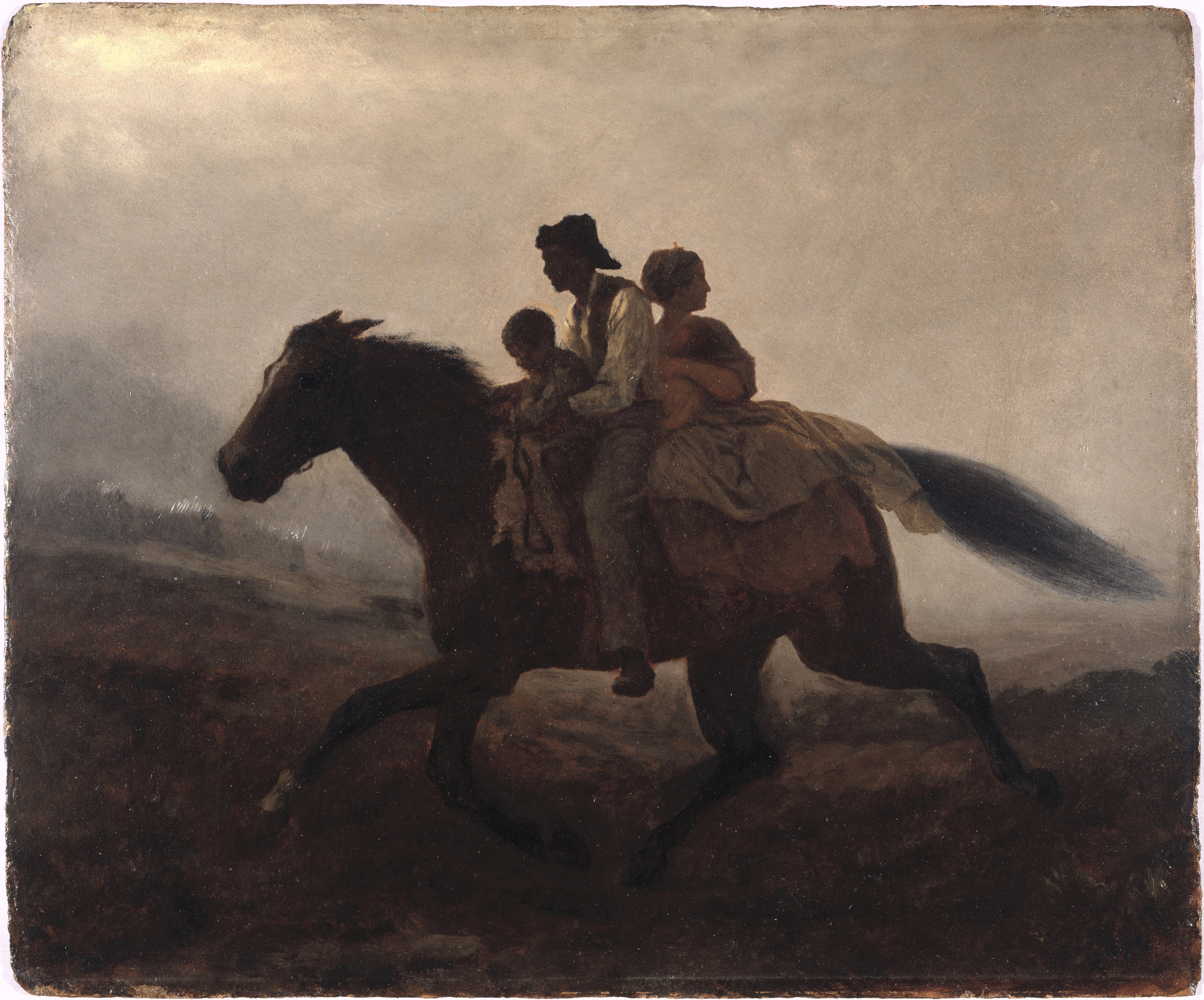A student of mine recently asked a question I could not answer for certain, even though I consider myself fairly well informed on the subject: Did fugitives slaves ever head west; towards California, or the South West thinking perhaps to get as far away as possible?
I said that I am sure it happened sometimes, but that I know of no particular instances of such a migration or even of a route in that direction. I would think that distance , fear of native peoples, lack of knowledge of which way to go, or reliable guides etc. and the success of the NS Underground Railroad would have been a huge incentive to head north to a free state or Canada. Still I am sure it happened. We do know some slaves ended up in Mexico, the Caribbean and S. America.
Thoughts?
Patrick Dorsey
Dear Mr. Dorsey,
Although the westernmost documented terminus of the Underground Railroad is in Taber, Iowa, an undetermined number of black slaves are known to have made their way out of Texas to Mexico with the aid of such safe houses as the ranch of Nathaniel Jackson, a former Alabamian who released all his slaves upon establishing himself in Texas and who became religiously inspired to oppose slavery by aiding those making for Mexico (which had abolished the practice under Presidente Vicente Guerrero in 1829). Even those in Mexico had to be wary, however, of slave-catching bounty hunters operating south of the national border—some of whom would later become Texas Rangers. Other slaves from Mississippi and its neighbors are known to have escaped to Indian Territory, where some Civilized Tribes practiced a loose form of slavery, but also offered sanctuary for freemen and did plenty of marital intermixing.
Although California entered the Union as a free state, it was not necessarily a friendly destination for slaves seeking liberation by heading west through hostile Indian country and across the Rocky Mountains and arid deserts. Although not practicing slavery, California denied blacks suffrage or civil rights, and an attempt by the state senate to prevent the immigration of blacks to the state entirely in 1852 was foiled only through the political maneuvering of David C. Broderick, a former firefighter in San Francisco who became a solidly anti-slavery state senator and subsequently a U.S. Senator for California—until he was mortally wounded in a pistol duel with former California State Court Justice David S. Terry on September 13, 1859 (Broderick died of a punctured lung three days later).
Sincerely,

Jon Guttman
Research Director
World History
www.historynet.com
More Questions at Ask Mr. History
Don’t miss the next Ask Mr. History question! To receive notification whenever any new item is published on HistoryNet, just scroll down the column on the right and sign up for our RSS feed.





